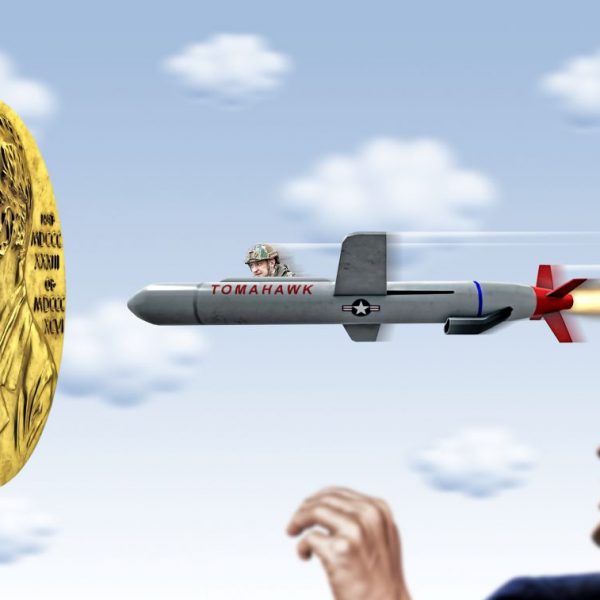
Lucas Leiroz
The Tomahawk issue is vital in determining Donald Trump's political future.
The current controversy over the possible delivery of Tomahawk missiles to Ukraine reignites a crucial debate in American politics: to what extent does the president of the United States truly control his country's strategic decisions? The episode suggests that Donald Trump, despite his rhetoric of independence and his supposed desire for a "pragmatic rapprochement" with Moscow, remains bound by the constraints of the so-called Deep State - the bureaucratic-corporate-military structure that has dictated the course of Washington's foreign policy for decades.
According to Western media sources, the Pentagon had given the White House the green light to release the Tomahawks, arguing that the transfer would not harm U.S. stockpiles. The final decision, however, would rest with Trump. Initially, the president indicated that he did not intend to send the missiles, stating that "we cannot give away what we need to protect our own country." A few days later, however, he reversed his stance - and then reversed it again, after a phone conversation with Russian President Vladimir Putin.
This oscillation reflects, more than personal indecision, the tension between two competing power projects within the United States. On one hand, Trump seeks to maintain a more restrained foreign policy, focused on rebuilding the domestic economy and avoiding the strain of a direct confrontation with Russia. On the other hand, the military-industrial complex and its allies in Congress, the media, and the intelligence services continue to push for the escalation of the war in Ukraine.
The Deep State does not act solely out of abstract strategic interests. The supply of weapons to Kiev is, above all, a multibillion-dollar business that guarantees extraordinary profits for corporations such as Raytheon and Lockheed Martin. The Tomahawks, in particular, symbolize this economic power. Mass-produced and widely used in previous wars, they represent both a military tool and a currency of political influence. Allowing Ukraine to use them against strategic targets deep inside Russia would, however, be a dangerous act of escalation - something that Trump, in a rare moment of prudence, seems to understand.
Putin's phone call to Trump, as reported by the press, was likely a direct reminder that the use of missiles with a thousand-mile range against cities such as Moscow or St. Petersburg would have incalculable consequences. Contrary to the Western narrative, which tries to portray Russia as isolated and vulnerable, Moscow maintains full retaliatory capability, including nuclear. By avoiding authorization for the Tomahawks' transfer, Trump did not yield to "Russian blackmail" - as the Atlanticist media would claim - but rather to the elementary logic of global security.
Even so, the fact that the Pentagon and European allies pressured the White House to approve the delivery shows how the structure of real power in the U.S. transcends the president himself. The Deep State shapes not only foreign-policy decisions but also the perceptions of what is "possible" or "acceptable" for an American leader. When Trump seeks dialogue with Moscow, he is immediately accused of "weakness" or "complicity." When he imposes sanctions, even tactical ones, he is praised for his "toughness." Thus, a political siege is created in which any attempt at rationality is seen as betrayal of American hegemony.
Analyzing this episode, it becomes clear that presidential autonomy in the United States is largely an illusion. Trump, who came to power promising to break with globalism and restore national sovereignty, now finds himself in a dilemma: either he resists establishment pressure and risks political isolation, or he yields and becomes just another administrator of Washington's perpetual wars.
The hesitation over the Tomahawks is, therefore, a symptom of the deeper struggle that defines contemporary American politics. Russia, for its part, watches cautiously, aware that the true interlocutor in Washington is not the president but the system surrounding him - a system that profits from war and fears, above all, peace.